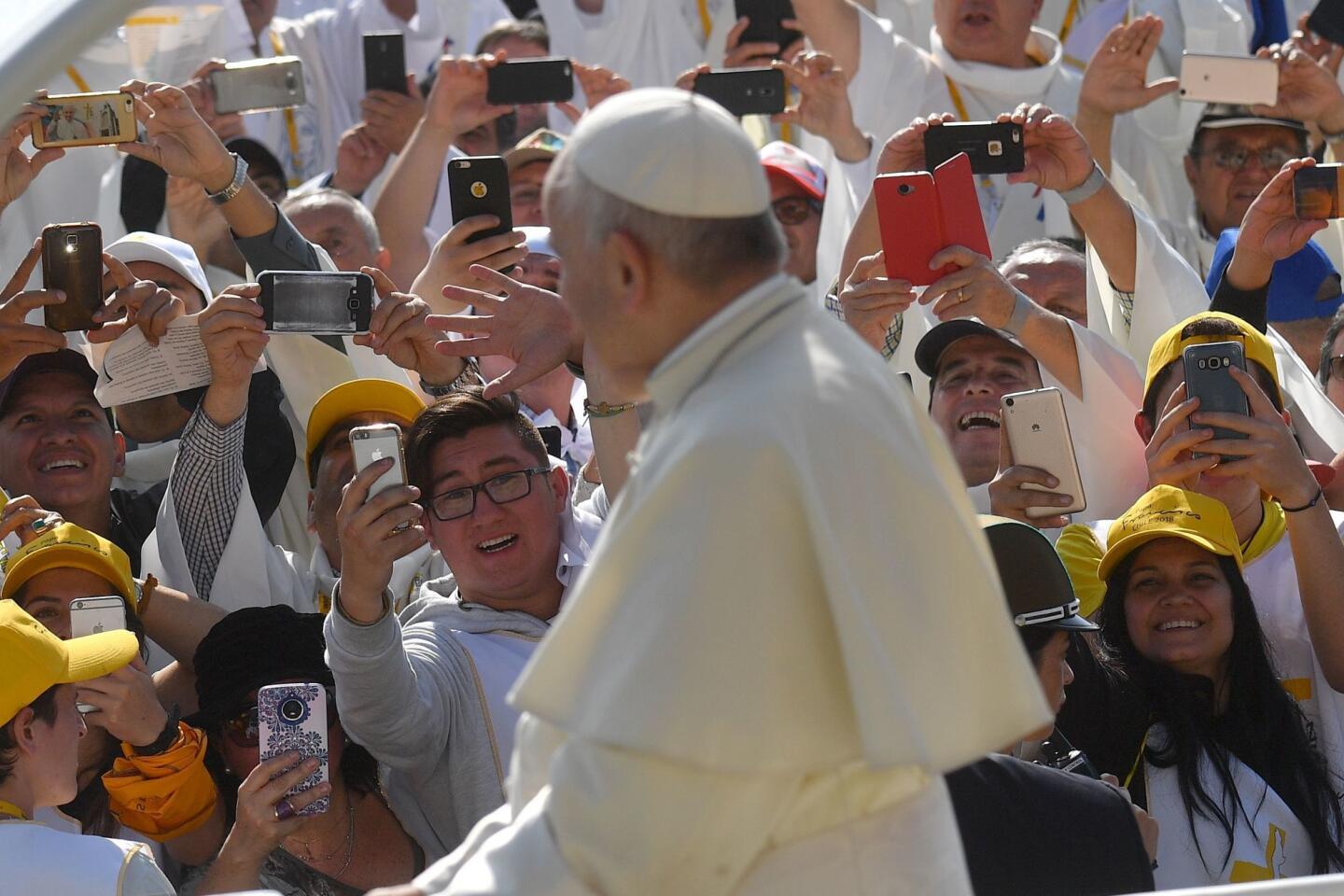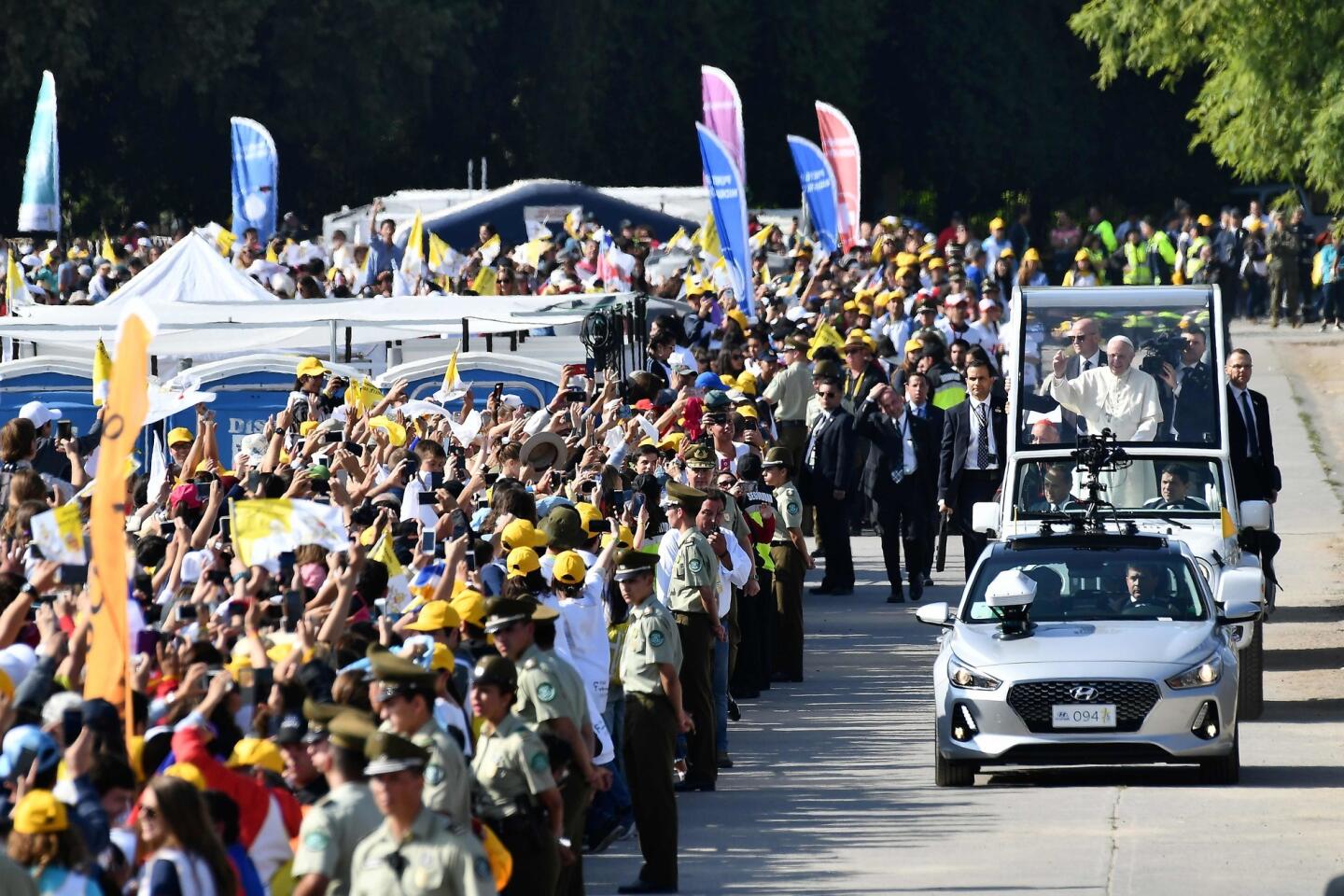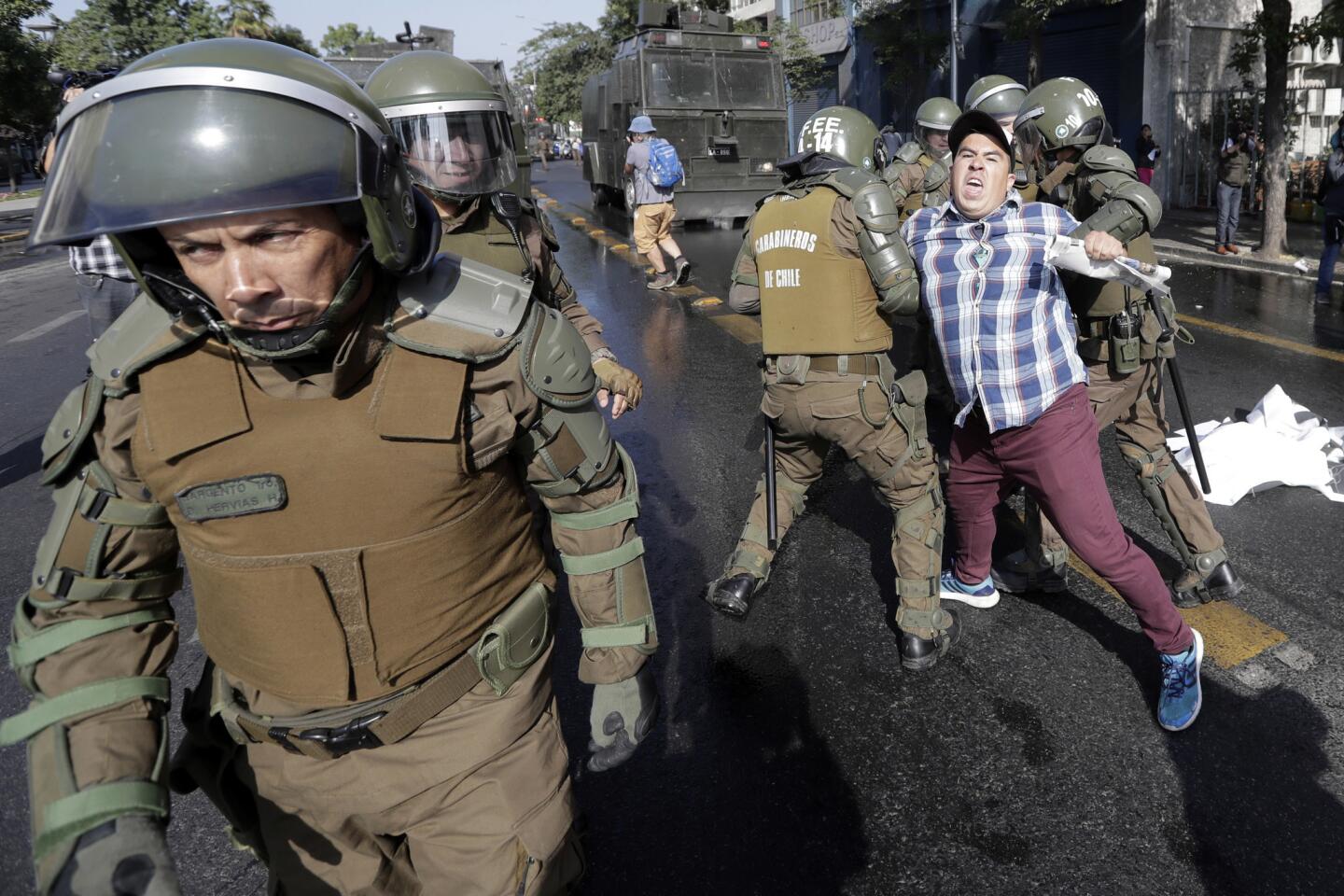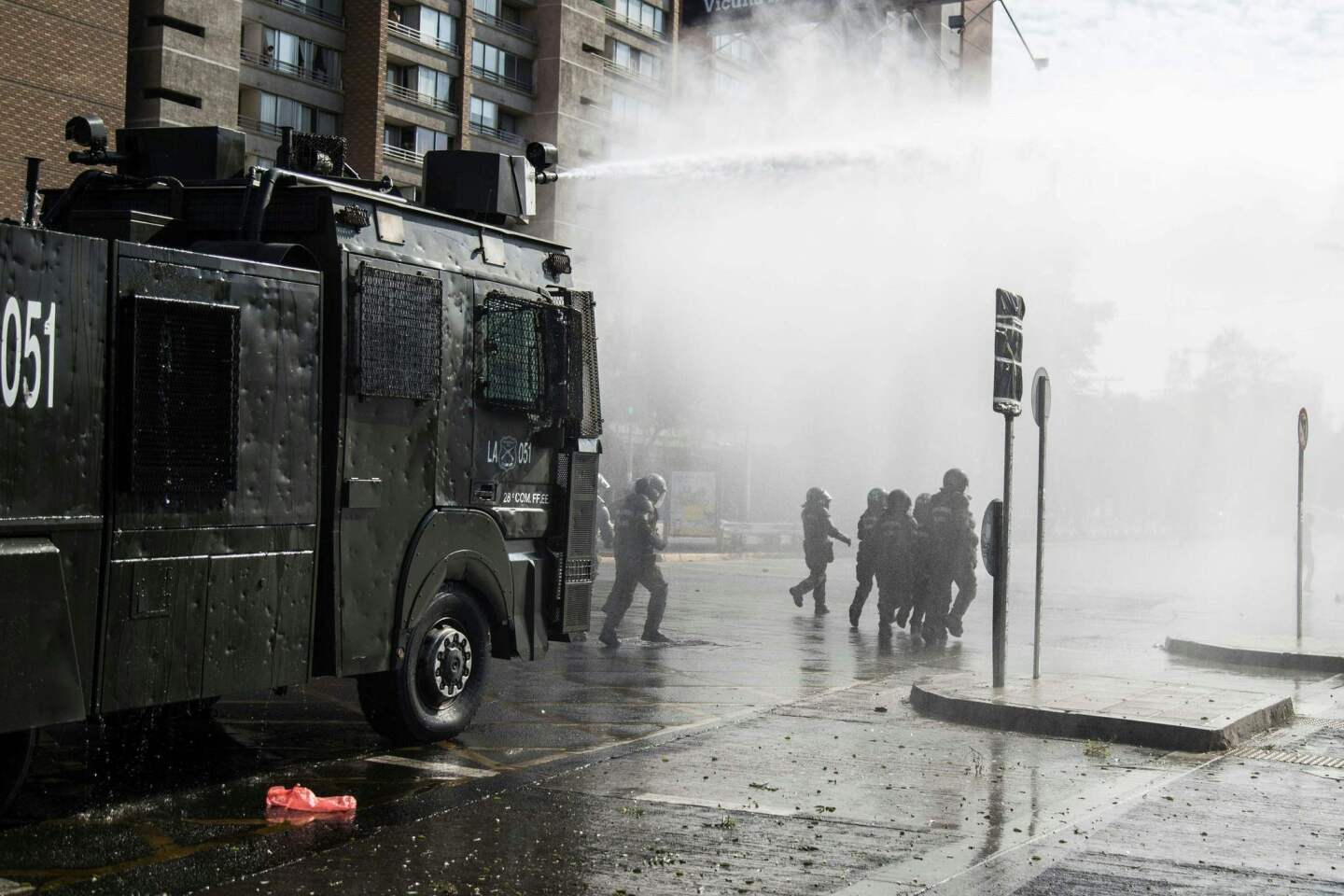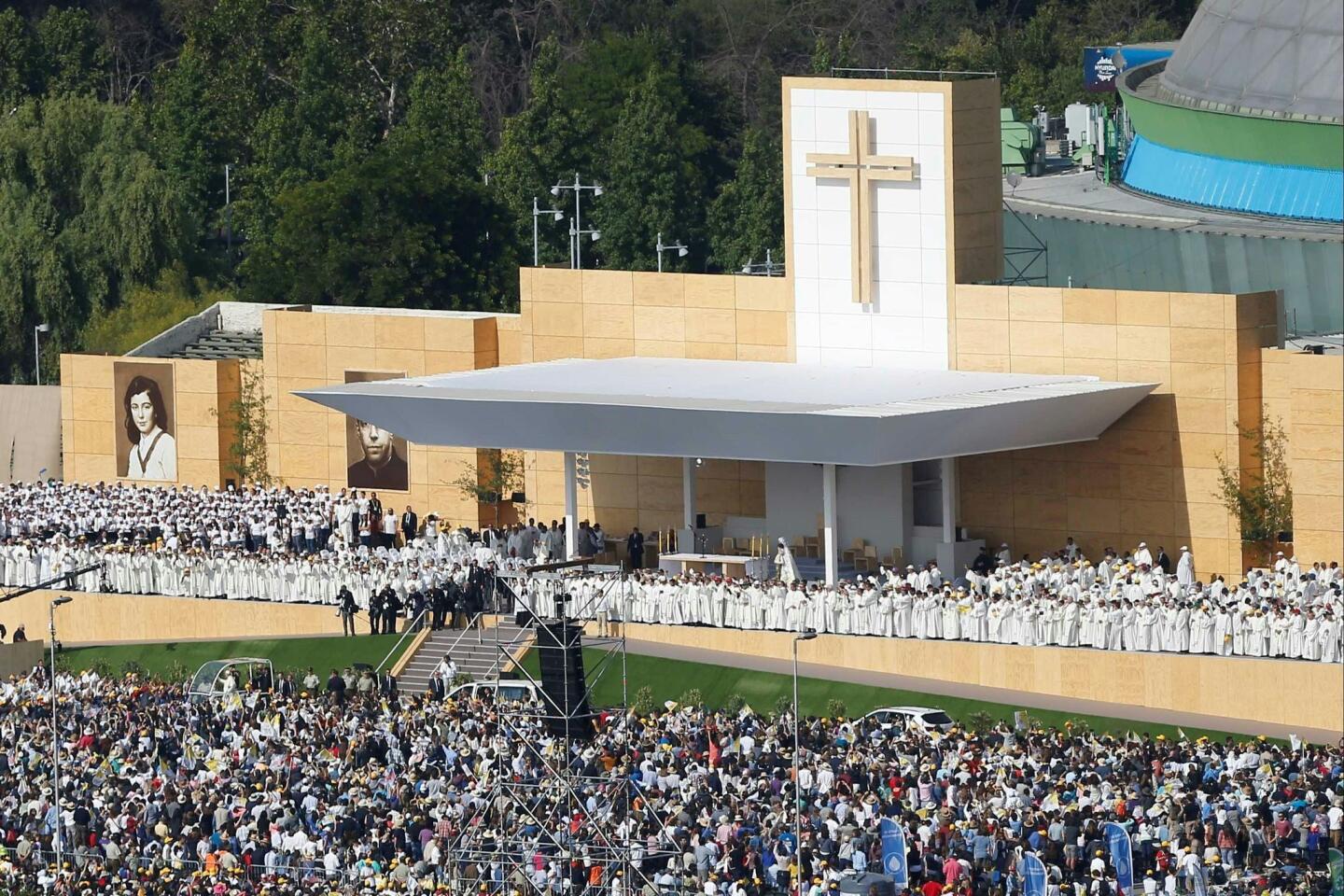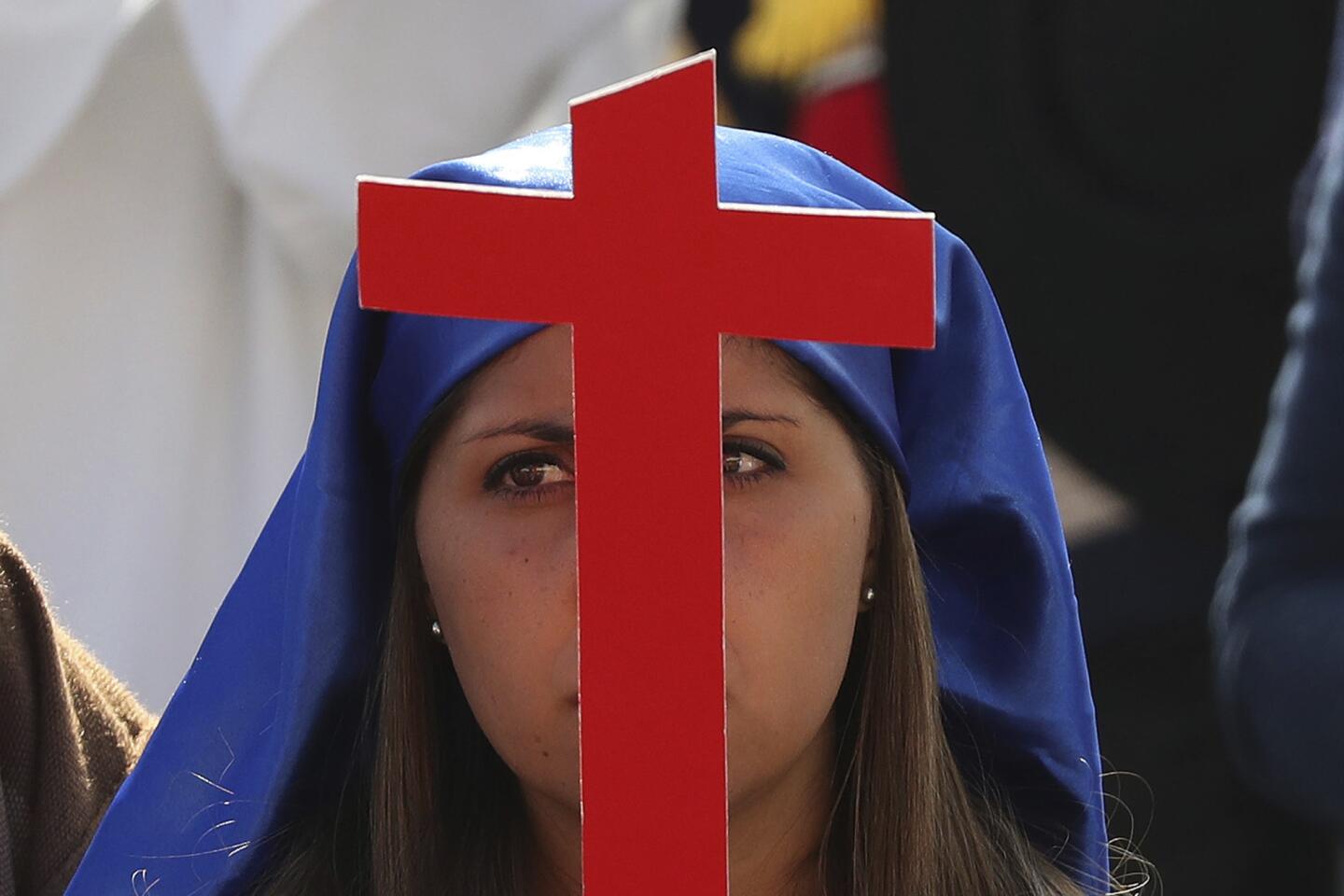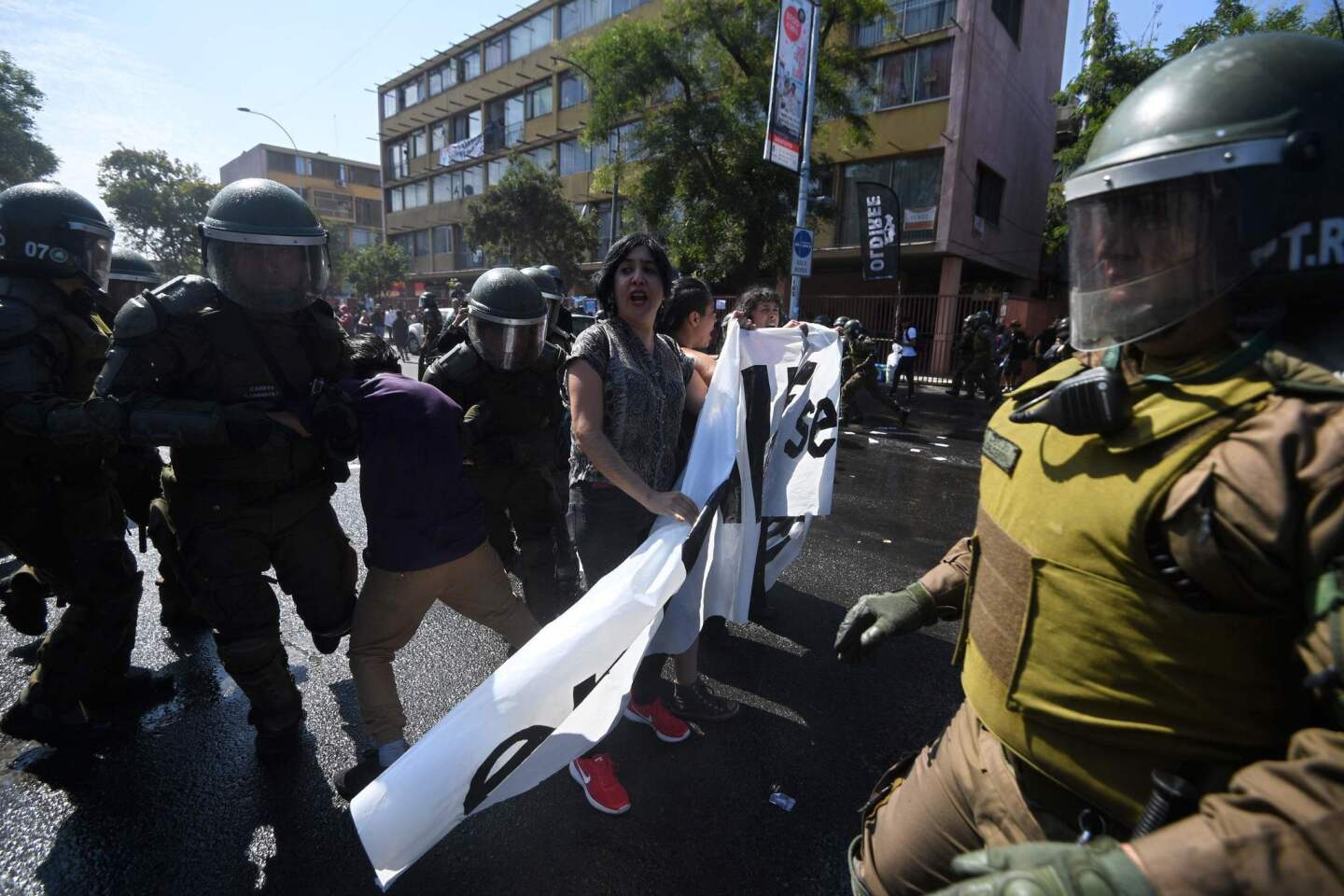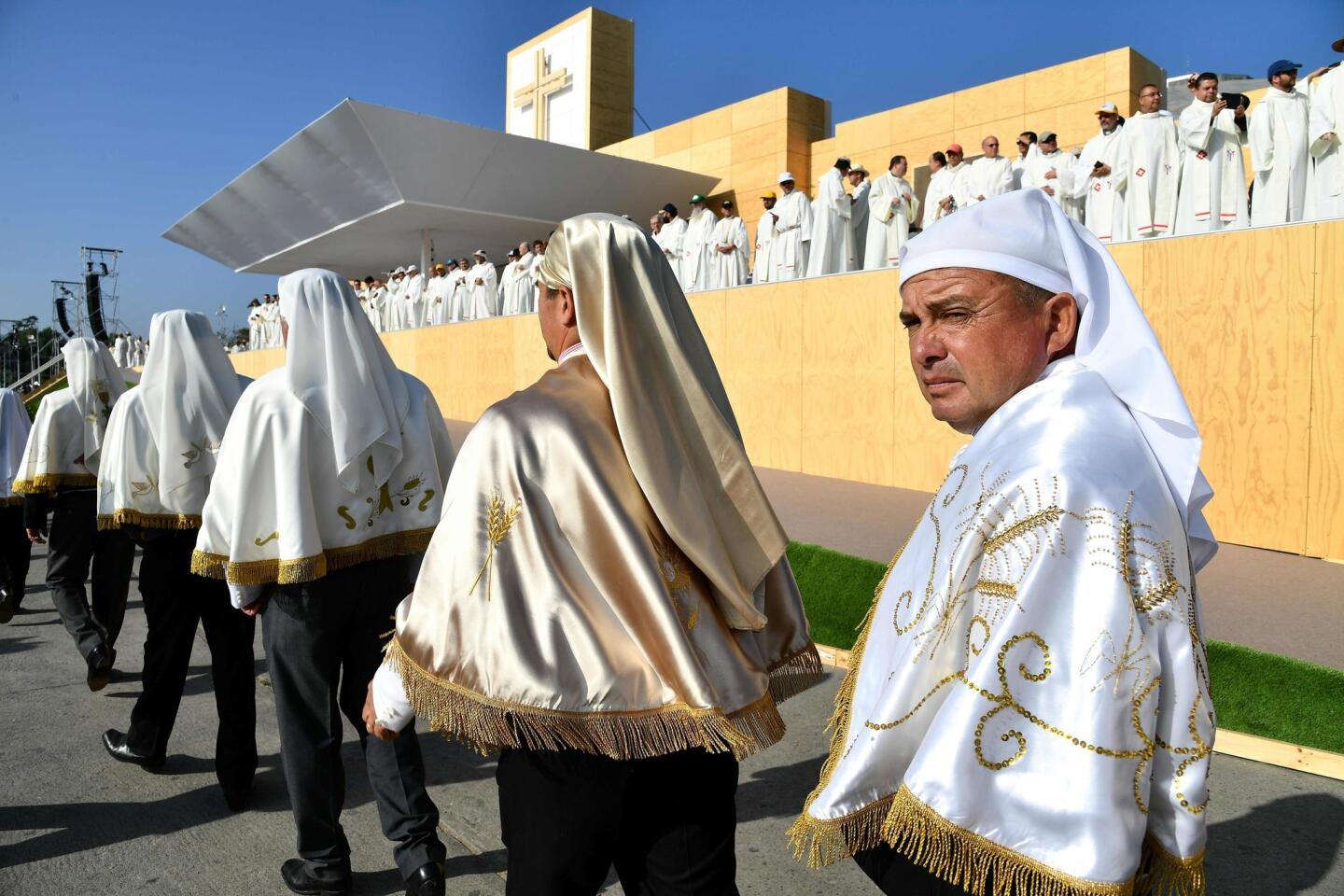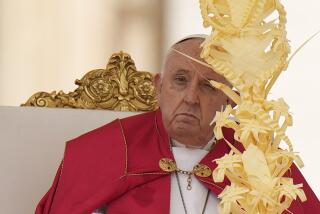Pope Francis begins visit to Chile and Peru with apology for sexual abuse by priests
Reporting from Santiago, Chile â Pope Francis opened the first full day of his visit to Chile with a somber apology for clerical sexual abuse, confronting a scandal that has roiled the Roman Catholic Church here and elsewhere.
âI cannot help but express the pain and shame, shame that I feel over the irreparable harm caused to children by church ministers,â Francis said at La Moneda presidential palace here in the Chilean capital.
For the record:
9:30 a.m. Jan. 16, 2018An earlier version of this article misspelled Bishop Juan Barrosâ last name as Barrios.
âIt is fair to ask for forgiveness?â he asked.
Later, after presiding over an open-air Mass with an estimated 400,000 faithful gathered in the capitalâs OâHiggins Park, Francis expanded on his apology in a doleful address at the Metropolitan Cathedral of Santiago, the nationâs principal Catholic house of worship.
âI know the pain resulting from cases of abuse of minors, and I am attentive to what you are doing to respond to this great and painful evil,â Francis told gathered bishops and other clerical dignitaries. âPainful because of the harm and suffering of the victims and their families, who saw the trust they had placed in the churchâs ministers betrayed. Painful too for the suffering of ecclesiastical communities.â
In some cases, he noted, priests had been âinsulted in the metro or walking on the street,â and that many had paid a âheavy priceâ for being seen in public in clerical attire.
A âwoundedâ church, Francis suggested, could recover and be in a better position to provide guidance in a turbulent world.
âWe are not seeking to ignore or hide our wounds,â Francis said in the cathedral. âA wounded church can understand the wounds of todayâs world and make them her own, suffering with them, accompanying them and seeking to heal them.â
The raging controversy here about clerical sexual abuse â combined with recent firebombings of several churches â have injected a sense of tension and unpredictability into Francisâ visit to this traditionally Roman Catholic nation.
The pope has previously declared a âzero toleranceâ policy for clerical sexual abuse, moved to discipline pedophile priests and enacted guidelines to protect children. But some groups representing victims say the pope has not gone far enough, especially in the cases of clerical superiors who tolerated abuse or covered it up.
In Chile, the clerical sexual abuse crisis has been cited as a factor in a sharp decline of those identifying as Catholic.
Francis in particular has been heavily criticized for his 2015 appointment of a bishop, Juan Barros Madrid, to head the Diocese of Osorno in southern Chile.
Some abuse victims have accused Barros of protecting a mentor, Father Fernando Karadima, who was investigated by the Vatican and found to have abused teenage boys and adults for years from his parish post in Santiago. He was never prosecuted criminally, but in 2011, the Vatican sentenced him to a life of prayer and penance.
As he has in the past, Barros denied that he had covered up for his former mentor.
âI would like to reiterate that many lies have been told about me,â he told the Chilean media Tuesday.
âI have said many times that it is one thing to have participated in a parish community and quite another to have witnessed the things for which this priest [Karadima] was condemned,â he said. âI never witnessed that.â
The Vatican said Tuesday that victims of clerical sexual abuse met with Francis for about half an hour at the papal nunciature in Santiago but offered no further details. Victim advocates had been pushing for such a meeting.
The last papal pilgrimage to Chile was in 1987, when Pope John Paul II sought to heal deep rifts in a society still ruled by the dictatorship of Gen. Augusto Pinochet. Chile has since returned to democracy and boasts one of the continentâs most robust economies, though deep social divisions remain.
La Moneda palace, where Francis issued his apology Tuesday for sexual abuse by priests, was famously attacked by warplanes during the coup of Sept. 11, 1973, that brought Pinochet to power.
Francis appeared alongside Chilean President Michelle Bachelet, whose father, an air force general, was imprisoned and tortured for opposing the coup and died the next year after a heart attack.
The drama of the visit has been heightened by a string of firebombings of churches.
Three days before Francisâ arrival in Chile, three churches were attacked with gasoline poured into bottles and ignited. On Sunday, another church was firebombed. Then on Tuesday, authorities reported that three more churches had been torched â two in the southern region of Araucania and another just south of Santiago.
Police have not named any suspects, but Francis was scheduled to meet Wednesday in the city of Temuco with Mapuche leaders, who have been fighting for greater autonomy and a return of ancestral lands. Mapuche activists have set fire to churches in the past as a form of protest.
Despite the violence and the clerical abuse scandal, enthusiastic crowds have greeted the pope since he arrived here Monday from Rome.
Tens of thousands lined up in the predawn hours Tuesday outside OâHiggins Park in anticipation of Francisâ arrival for the open-air Mass. Throngs waved greetings as the pontiff arrived in the popemobile.
âItâs a great honor to be here,â said Jacqueline Olguien, 48, part of a group of 15 from a parish in Santiago. âThis pope speaks to us directly.â
Vendors sold coffee and snacks as lines of papal well-wishers waited to get in the park. Some sang religious songs. The Mass began beneath a blazing, midsummer South American sun.
Worshipers waved flags of their home countries. And while Chilean flags dominated, there were many from neighboring Argentina, the birthplace of the first pope from the Americas.
âYes, we hope to see Francisco someday in Argentina,â said Dahiana Veroitza,19, part of a contingent from southern Argentina attending the Mass. âWe are all very proud of him. But itâs very moving to be in his presence here in Chile as well.â
The Argentine press has been filled with speculation about why Francis has not yet made an apostolic visit to his homeland, though he has now made four trips to South America. Some observers have suggested that the pope â well versed in the contentious political scene in his native country â did not want a papal visit to be dragged into Argentinaâs divisive internal political debates.
Francis is scheduled to continue to Peru later in the week and is expected to preach on indigenous rights, environmental destruction in the Amazon and the plight of immigrants.
Twitter: @PmcdonnellLAT
Twitter: @TracyKWilkinson
Times staff writers McDonnell reported from Santiago and Wilkinson from Washington. Special correspondent Jorge Poblete in Santiago contributed to this report.
UPDATES:
6:40 p.m.: This article was updated throughout with details of the visit.
9:30 a.m.: This article was updated with information about violence at churches.
This article was originally published at 6:40 a.m.
More to Read
Sign up for Essential California
The most important California stories and recommendations in your inbox every morning.
You may occasionally receive promotional content from the Los Angeles Times.
